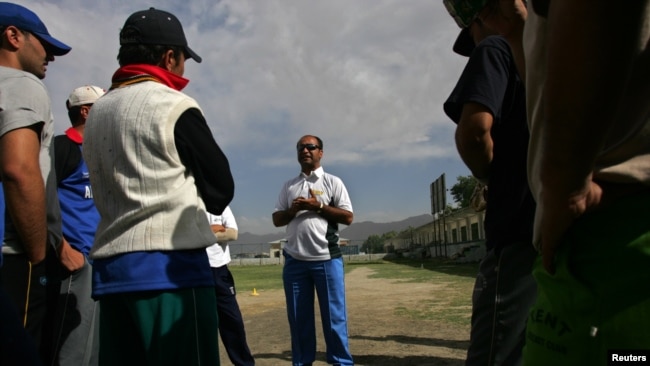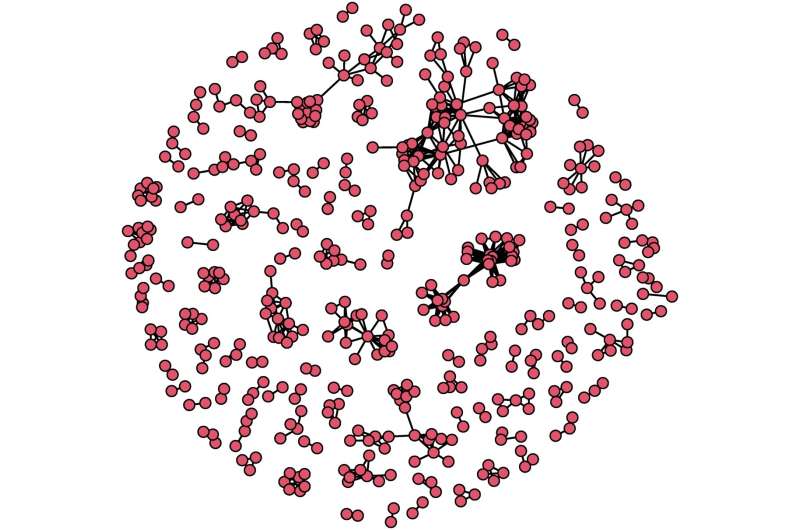June 05, 2024
By Jafar Haand
Matiullah Abid Noor

WASHINGTON —
When the parents of Karim Sadiq and Taj Maluk fled a wrecked Afghanistan torn apart by the 1979 Soviet invasion and infighting warlords, they didn’t imagine their children — Karim and Taj — would return to reunite the war-torn nation through cricket.
Taj Maluk became the first coach of the Afghan national team. Fans refer to him as one of the founding fathers of Afghan cricket. Younger brother Karim Sadiq played a key role in Afghanistan’s qualification in the World Cup in 2010, creating history for the cricket-loving nation of more than 40 million.
The brothers were brought up in a refugee camp called Katcha Garhi, in Peshawar, Pakistan. The family left a decent life in the eastern Nangarhar province to live in a sea of mud houses and poverty.
“Life was all struggle those days,” Karim Sadiq recalls. “Doing odd jobs in the night and playing cricket in the daytime. We used a stick as a bat, used to make plastic balls from plastic waste material.”
There was an old black-and-white TV set in their refugee camp where the young and elders watched international matches, including Pakistan winning the 1992 World Cup. These events had a huge influence on aspiring cricketers in Afghan refugee camps.

The elder brother, Taj Maluk, searched for talent in refugee camps and founded the Afghan Cricket Club, which arguably laid the foundation of the future Afghanistan team.
Another Afghan cricketer, Allah Dad Noori, also played a key role by pioneering a path for cricket in Afghanistan.
Like the brothers, many international Afghan players, such as Mohammad Shehzad, Raees Ahmadzai, Mohammad Nabi, and the country’s first global star Rashid Khan, now captain, all grew up learning cricket and becoming cricketers in Peshawar, Pakistan.

“It was our passion. We didn't know then that Cricket would bring such happiness to the Afghan nation,” Karim Sadiq told VOA. “Cricket conveys a message that Afghanistan is not a country of war and drugs. It's a country of love and sports.”
In 2001, after the invasion of the U.S. forces against the Taliban rule, cricket flourished in Afghanistan, which became an associate member of the ICC, the world’s cricketing body.
A new younger generation of cricketers emerged. Now, Afghanistan is a full member of the ICC’s elite club of 12 countries, and it enjoys the status of a test-playing nation.
The Afghan team won many hearts in the 2023 World Cup after earning wins against the former world champions — Pakistan, England and Sri Lanka.
“Afghan players fight for every match as they are fighting for the nation,” Pakistan’s former captain, Rashid Latif, who coached Afghanistan, told VOA. “T20 cricket needs aggression and Afghanistan players have it. They are capable of surprises in the World Cup.”
Now, Afghanistan is playing in the T20 Cricket World Cup co-hosted by the United States and West Indies. It has strong contenders like New Zealand and West Indies in the group, along with minnows Papa New Guinea and Uganda. Some experts call it the “Group of Death” because only two teams will make it through the knockout stage.

The Taliban banned all women's sports and put restrictions on some men’s sports, but not cricket. There is speculation it’s because they enjoyed the game themselves or were apprehensive about the possible public reaction if they banned it, given its massive popularity.
A few weeks ago, when Afghanistan’s team captain, Rashid Khan, visited Afghanistan to meet family and friends, Taliban officials presented him with bouquets and took selfies with the superstar.
Rashid and his team members, including young superstars — batters Rehmanullah Gurbaz and Ibrahim Zadran, allrounder Azmatullah Omarzai, spinners Mujeeb-ur Rehman and Noor Ahmed — have arrived in the West Indies, as have their diehard supporters from Europe, Canada and the U.S.
Back in Afghanistan, Karim Sadiq is now working to promote the sport, while his elder brother, 49-year-old Taj Maluk, has turned to religion. “Cricket is not just a game. It reunites Afghans and brings joy to the lives of people,” Taj Maluk told VOA. “We will pray for their success.”
Karim Sadiq recalls when Afghanistan qualified for the T20 World Cup in 2010. “When we returned home, it was a festival. Everywhere, celebrating crowds held up the Afghan flag. We all wish to see such festivity again, to see Afghanistan become the World Champion.”
Across Afghanistan, fans have made special arrangements to view the matches. Some have pooled their money to buy dish antennas. Others have decorated the hujras, or living rooms, with national flags.
“Afghanistan is a wounded land. Cricket helps people stitch those wounds,“ said Shams ul Rahman Shirzad, a cricket fan in Nangarhar, from where the brothers Taj Maluk and Karim Sadiq hailed and once dreamed of having a national cricket team.
This story originated in VOA’s Afghan service.




 Mark Zuckerberg, CEO of Meta, testifies before the Senate Judiciary Committee at the Dirksen Senate Office Building on January 31 in Washington, D.C. Meta has been accused of censoring pro-Palestinian content in a new lawsuit.... More ANNA MONEYMAKER/GETTY IMAGES
Mark Zuckerberg, CEO of Meta, testifies before the Senate Judiciary Committee at the Dirksen Senate Office Building on January 31 in Washington, D.C. Meta has been accused of censoring pro-Palestinian content in a new lawsuit.... More ANNA MONEYMAKER/GETTY IMAGES NEWSLETTERThe Bulletin
NEWSLETTERThe Bulletin




